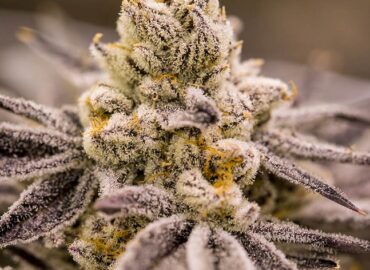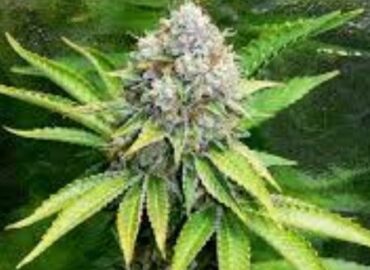The advent of marijuana prohibition has altered the landscape of drug testing. While it is true that many businesses still have a “zero-tolerance” policy, an increasing number are eliminating weed tests. Several jurisdictions now demand that employers allow workers to use medical cannabis if they so choose.
In late 2018, for example, a federal court in Connecticut heard that a federal contractor was not allowed to enforce its zero-tolerance drug policy against someone with an MMJ card. In Oklahoma, employers are unable to penalize employees if they find out that someone is a medical marijuana cardholder. A positive drug test does not justify suspension or termination of employment for a medical marijuana user unless the employer is compelled by law or risks losing a federal benefit.
It’s not all rainbows and roses, though. In California, where recreational cannabis is legal, companies are not required to be cautious. They can fire you for testing positive for THC if you use it outside of work and during your time off. We recommend that you look over your employment contract to find out what will happen if you test positive for marijuana while taking it as prescribed by a doctor.
People will do anything to pass a pending drug test, including purchasing useless things, consuming potentially harmful toxic chemicals, and diluting their urine.
Despite the fact that none of these approaches work, people continue to try them. Why? Because they’ve been misled by cannabis detox urban myths. In this article, we debunked a number of these rumors and delivered some serious bombshells on you.
What Is Detoxing?
When it comes to THC, detoxing is the process of not smoking or ingesting cannabis in order to remove it from your system. The length of time required varies according to a variety of circumstances, with usage levels topping the list. During the detoxification process, anxiety, sleeplessness, lack of hunger, headaches, and irritability are all possible adverse effects.
It’s true that your body will eventually eliminate all traces of marijuana, but it takes time. THC stays in your system as you continue to smoke. There are different strains with varying degrees of the cannabinoid, although generally, the more marijuana you consume, the longer it takes for the THC to dissipate from your body. The metabolic rate varies from person to person and determines how long residuals remain.
It’s not enough to quit marijuana on your own. Because these tests are meant to catch you by surprise, don’t expect much time to prepare. This is a disaster for those who use cannabis on a daily basis. Even if you only smoke once, the drug may stay in your system for up to eight days.
For individuals who only use marijuana occasionally, it might take up to 15 days to get clean. Regular users could take a month, while some people have claimed that heavy users may need to go without for 77 days! If someone’s job is on the line because of a drug test at work, they’ll try all kinds of desperate measures to get by.
How Do Drug Screenings Work?
For the record, drug screenings look for traces of the 11-OH-THC and THC-COOH metabolites, two of the 80+ cannabinoids found in cannabis. The delta-9-tetrahydrocannabinol is absorbed into the circulation when you smoke marijuana. THC is stored in fatty tissues and organs after it enters the body through smoking. THC may be reabsorbed back into the circulation when it travels through the kidneys.
THC is broken down in the liver. Because the two metabolites are longer-lasting than THC itself, drug screens check for them. THC and its breakdown products leave the body via feces and urine after a certain period of time.
Let’s debunk some of the most popular THC detox urban legends and show you the truth.
Myth: All You Need is Water (And a ‘Detox’ Drink)
After being legalized in several states, the THC detox drink market has grown. According to consumer feedback, some of these beverages appear to be effective. You’ll notice that they always advise you to drink gallons, if not a gallon, of water regardless of the drink’s components.
Fact: It Is Stupid… AND Dangerous
This misconception has a small bit of truth to it. Water can reduce THC metabolite levels in your urine. It generally makes your pee appear unusually light blue, though. Detox beverages with components that ensure your urine has a more natural tone and passes when testers examine the content of the pee are the best detox drinks.
However, in severe situations, drinking too much water can result in hyperhydration, also known as ‘water intoxication.’ This causes electrolyte imbalances and, in rare cases, death. If you dilute your urine excessively, it will have a low specific gravity and creatinine level.
When you drink too much water, the amount of water in your blood rises. The levels of electrolytes in your blood may be diluted, particularly sodium. When your sodium concentrations fall below 135 mmol/L, you develop hyponatremia. Fluid shifts from the outside to the inside of cells during this process, resulting in swelling. If brain cell swelling occurs as a result of this movement, it can have deadly consequences.
The quantity of water required to produce hyponatremia symptoms is far less than you might think. Consuming as little as three liters of water over a short duration may be enough. Try to keep from drinking more than one liter of water each hour on average, since your kidneys can eliminate up to 20 and 28 liters every day.
Furthermore, just 20% of THC is excreted in urine. Sweat (about 15%) and other bodily fluids (e.g., feces) account for the remaining 75 percent of elimination. To put it another way, you’re better off using laxatives rather than drinking a lot of water, but that’s another blunder!
Myth: Synthetic Urine Is the Answer
There are a plethora of businesses online that sell counterfeit urine. One of the oddest tales we’ve heard involves individuals using chicken noodle soup broth as an equivalent to their urine. Synthetic pee has been used in certain situations before. However, you need tremendous balls in what is essentially a desperate last-ditch effort.
Fact: Lab Tests Are Sophisticated
Do you believe that chicken broth could be mistaken by a trained lab technician with years of urine analysis testing? The chemical examination will expose you if the scent isn’t enough. It’s the same story with synthetic urine; while vendors claim to have correctly matched the chemical composition for human urine, they are usually lying!
Myth: Natural Diuretics Are Effective in Flushing Toxins from the System
Although there is some controversy surrounding the term, most doctors agree that it refers to any drug or chemical which increases urine flow. Coffee, tea, beer , cranberry juice, and other beverages with caffeine are all examples of popular diuretics. Detox drinks and medications like Lasix or Modil are also available.
Fact: They Dilute Toxins, but Don’t Eliminate Them
Diuretics will cause you to urinate, but they won’t remove THC. Yes, diuretics can aid in the removal of pollutants from the body and the reduction of metabolites in urine levels, but they function similarly to drinking a lot of water for THC detoxing purposes. Diuretics speed up your peeing, but at the same time your sample is diluted enough to catch attention. As a result, you receive an invalidated or abandoned test.
Myth: Household Products Can Help You with THC Detox
Some individuals think that, in a bind, you must rummage through your home for little objects. Some fools believe that drinking undiluted bleach aids in the passing of a urine test. Remember, bleach is used to clean filth from public restrooms and toilets.
There’s a long history of using vinegar, pickle juice, and niacin for this purpose, which has fallen into the ‘old housewives’ folklore.’ It is claimed that items like as vinegar, pickle juice, and niacin are beneficial. The notion is that drinking vinegar before an exam will clear your system or hide THC traces.
The thinking is that drinking pickle juice will dissolve drug metabolites and cleanse the urine since it is highly acidic, similar to vinegar. Vitamin B3, known as niacin, is used to increase metabolism while lowering blood pressure. Because niacin dilates blood vessels, it is believed that it will remove THC from the body.
Fact: Science Says You’re Wasting Your Time
When you eat vinegar, it combines with gastric enzymes and stomach acid to alter the pH of your urine. It has no effect on marijuana metabolites and is likely to make you sick due to an upset stomach and a severe dose of diarrhea. Pickle juice contains only acetic acid, which is also present in vinegar. It also contains a significant amount of salt, making you thirstier and prompting you to drink water as a result.
There’s no proof that niacin has any effect on your urine’s THC concentration, and an overdose will result in side effects such as dehydration, fever, dry skin, and irritation.
Furthermore, if you believe drinking bleach will help you pass a drug test, it’s surprising that you have a job at all! Even if it is genuinely effective, it might easily kill you. And in fact, the chemicals found in bleach and Drano do not react with any illegal or metabolite drugs. It is sodium chloride, sodium hydroxide, and sodium polyacrylate ingredients that harm your body.
Final Thoughts on THC Detox Myths
There is no guarantee that any detox drink will allow you to pass a urine test with a low enough level of THC to go undetected, regardless of what marketers may claim. If you’re considering using marijuana and have an upcoming drug test, you could try some fast-acting THC detox techniques, but none are guaranteed to succeed.
A mixture of fruit pectin and Gatorade, often known as a “Gator Aid,” has long been considered an effective emergency preparation. Follow it up with two more glasses of water and B vitamins. Zinc, papain, and aspirin may not be necessary depending on the type of test being taken. Some popular weight-loss methods are unhealthy while others are genuinely dangerous and stupid.
Depending on the amount of marijuana you smoke, a genuine THC detox might need weeks to complete. Abstinence is critical, and it’s more successful when combined with increased water intake, exercise, and a nutritious diet.

